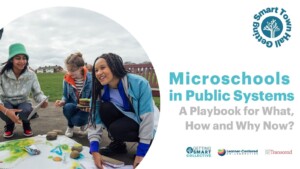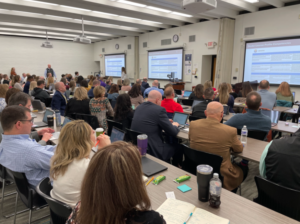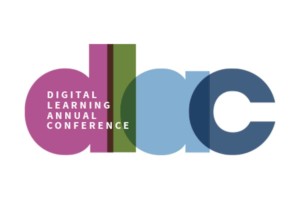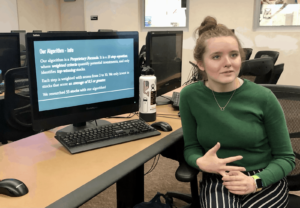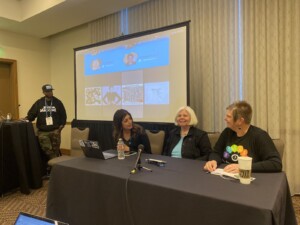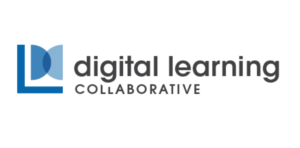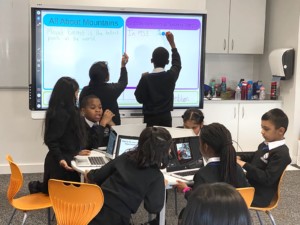Strong Start for Michigan’s Future of Learning Council
The Future of Learning Council (FLC), a cohort of 40 unique school districts and learning organizations, has banded together around a single mission: to shape the future of learning in Michigan.
DLAC 2021 – Digital Learning at an Inflection Point
Educator Carrie J. Pratt recaps her attendance at the 2021 Digital Learning Annual Conference.
Why Students Should Co-author Learning
When students co-author their own learning in today's unpredictable world of accelerating change, they develop leadership and problem-solving skills. We visit different education spaces to see what co-design looks like.
We Are All Digital Learners: Why DLAC is Perfect for You
Victoria Andrews and Rebecca Midles share their experience at the Digital Learning Annual Conference and why it's the perfect conference for you
Can’t Miss Education Conferences in 2022
The Getting Smart Team has curated a list of our favorite conferences that we think everyone should attend in 2022.
Why Collaborate for Online Learning? Because it Just (Net)Works
Jessica Slusser explores why collaborating for online learning works.
Bringing Project-Based Mentors into The Educational Fold
Patty Alper authored a book entitled, Teach to Work, How a Mentor, a Mentee and a Project Can Close the Skills Gap in America. She presents her findings here.
The New Fundamentals: Tools to Optimize Remote and Blended Learning and How Educators Can Use Them This Year
Global education advisor Giancarlo Brotto explores how edtech is transforming instruction to make learning more visible, accessible, and progressive.
Creativity Made Easy: How Your Students Can Practice the Skill for the 21st-Century
Esther Wojcicki details the 21-century skill that all learners should harness and a tool for all educators to explore.
Team Teaching, Educator Retention and Education’s Next Workforce
Discovering, creating and retaining great teachers who are driven to support every K-12 learner is one of the most effective ways to change long-term outcomes for both students and their future communities.


